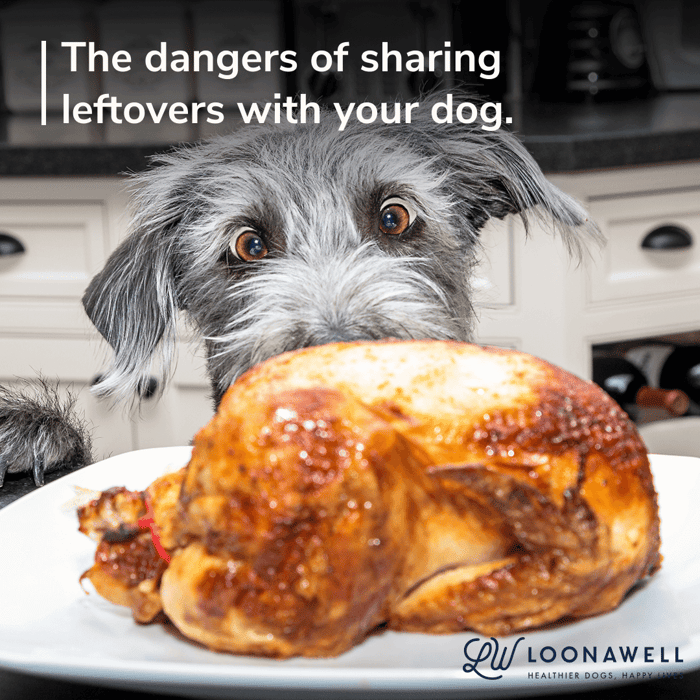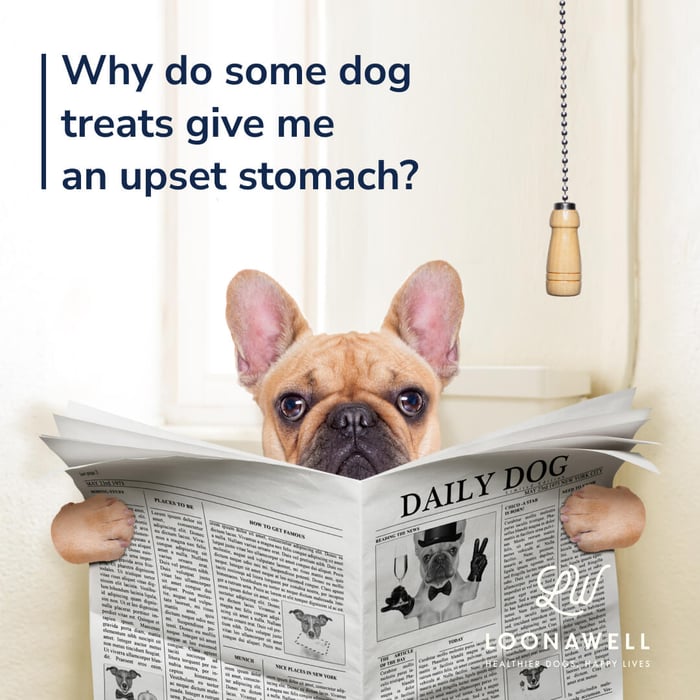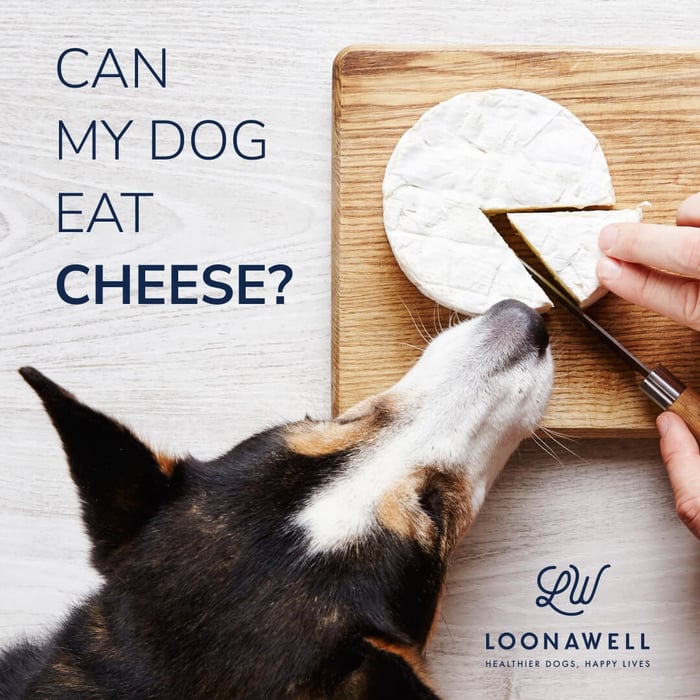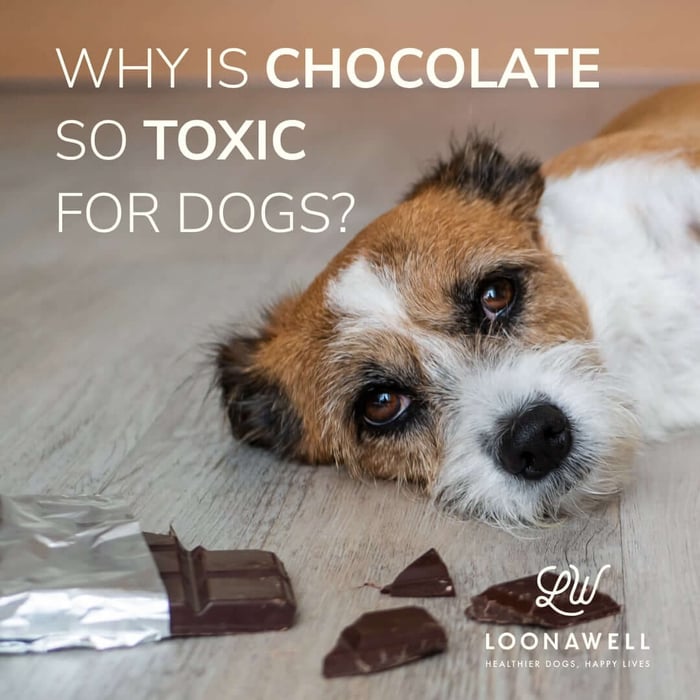When it comes to sharing leftovers and scraps with our furry friends, there are owners who love it as they feel it's part of the bonding process and others who literally avoid and believe it could be harmful for their pups. As you’ll be able to see along this article, there is truth in both views. At the end of the day and like any other ingredient and/or food, it takes a thoughtful, moderate and balanced approach to get it right.
Let's first get the dangers of sharing leftovers clear and then move on to what we can actually share.
These are the ingredients that can be found in your leftovers and which can be harmful for your dog:
Salt: The ingredient that we all love and makes food taste delicious! Although salt is necessary in a dog’s diet in very small amounts, pawrent’s own food usually contains larger amounts of salt than what dog’s should consume. Just to be on the safe side, avoid sharing crisps, pretzels, savory biscuits, salted bread, processed meat, fish or vegetables, including sausages and burgers, chips and cheese.
High amounts of salt in a dog’s diet can lead to dehydration, vomiting and diarrhea and eventually become life-threatening. So it’s not something you’ll want to disregard.
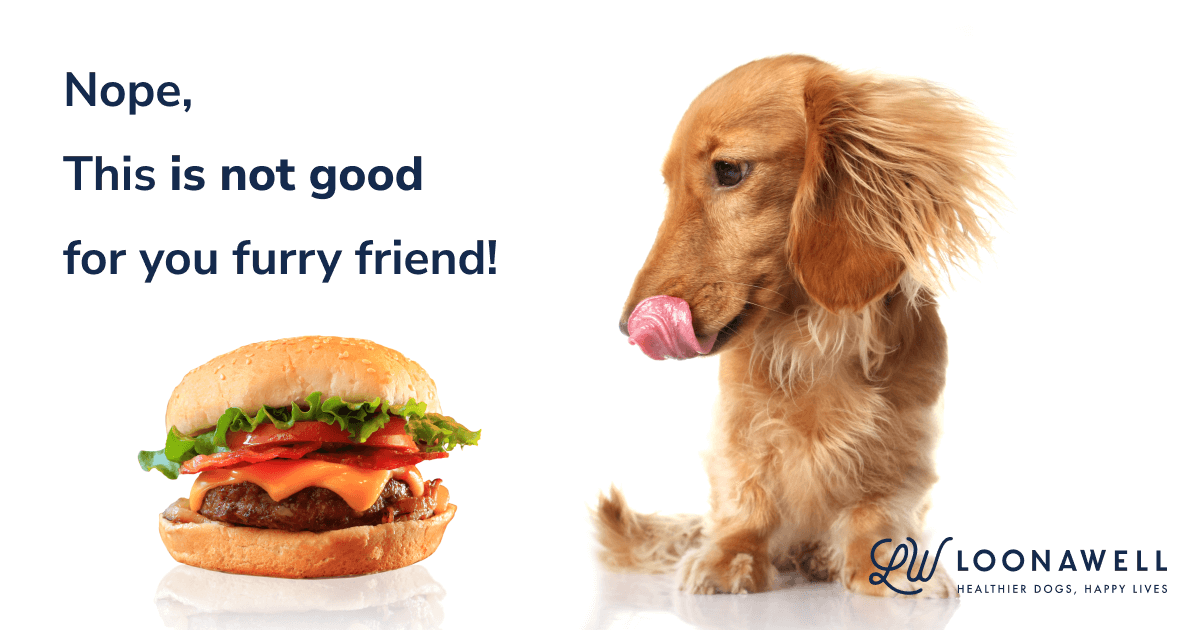
Xylitol: This is a natural sugar alcohol found in plants that has been widely used to replace synthetic sugar in human foods (for example in baked goods, beverages - as well as milk drinks, such as almond and oat milk- , vegetarian processed foods and so on).
Xylitol is well known to be toxic for dogs. Although one could argue that it all depends on the amount, as a rule of thumb, processed foods that have been developed for humans and contain xylitol, will put your dog in danger.
Xylitol can cause liver failure in dogs and ultimately lead to death, so it isn’t something you want to forget.
Onions and garlic: Onions contain a chemical compound called N-propyl disulfide that in dogs leads to the breakdown of red blood cells and consequent anemia. All parts of the onion and in any shape or form (raw, cooked, fried, powdered) are harmful for dogs. Unfortunately this extends to all other members of the Allium genus such as garlic, leeks, shallots and scallions.
Signs of onion (or any other on the list above) toxicity include, lethargy, weakness, fainting, reddish urine, decreased appetite, pale gums, vomiting and an elevated heart rate. The best is to avoid these ingredients at all costs to keep your puppy’s tummy safe.
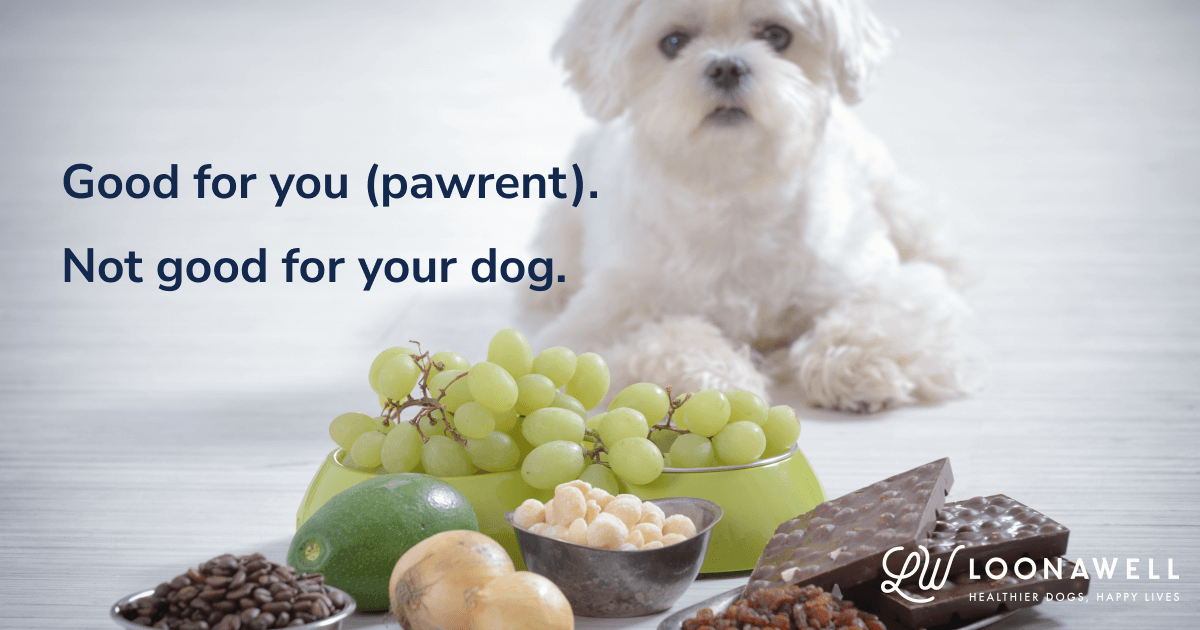
Raisins or grapes: Grapes and raisins (the dehydrated format of a raisin) have proven to be highly toxic for dogs regardless of age and breed. No matter the color of the grape, where it was grown, if it is seedless or not, they all represent a source of toxicity for your dog. From a scientific perspective, the exact compound and amount that causes such toxicity remains unknown.
Grapes and raisins are highly toxic for your dog and may lead to kidney failure and death. Dogs should never eat grapes or raisins.
Avocados: this delicious and nutritious fruit unfortunately has a compound (on its flesh, peel and pit) called Persin (a natural fungicide created by the plant to protect itself against parasites) that can be quite harmful to several animals; dogs included.
It is not clear what a fatal dose of avocado would be but in excess can cause vomiting, and diarrhea and prove harmful to the heart.
Fats: fats are hidden in many foods such as paté, sausages, meats cooked in sauces, meat trimmings, poultry skin, and avocado flesh. Every time you give your dog leftovers, you’re adding calories to their daily intake. This persistent behavior and a high intake of fats can contribute to your dog’s obesity and conditions such as pancreatitis (inflammation of the pancreas).
Chocolate: The two main culprits that make chocolate toxic for dogs are the compounds theobromine as well as caffeine. Dogs can’t metabolize these ingredients as well as we humans do and therefore its ingestion becomes toxic. Signs of chocolate intoxication include increased heart rate, diarrhea, vomiting, increased thirst and urination and, in severe cases, can lead to heart failure.
In conclusion, just like grapes, don’t ever give chocolate or coffee to your dog.
If you like sharing food with your dog, there are many healthy fruits and vegetables you can use to do so and that will also contribute to their health. Examples of these are apples, blueberries, raspberries, bananas, mango, broccoli, carrots, spinach and pumpkin. Our healthy, organic and freshly baked treats are also always a good option to have around. Besides nutritious and low in calories, they’re yummy for your doggy and will provide you peace of mind.
We love writing about healthy ingredients but sometimes it is also good to recap all those foods that are not so healthy for our pups.
